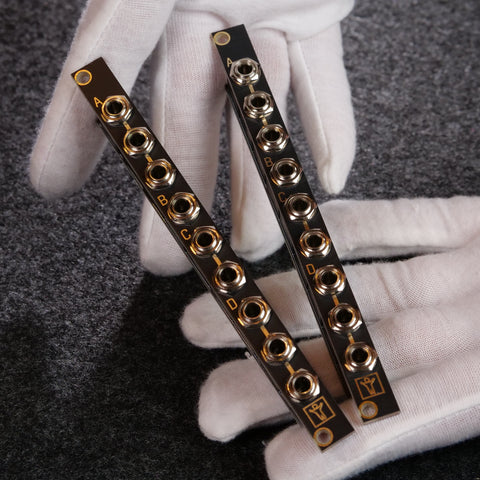

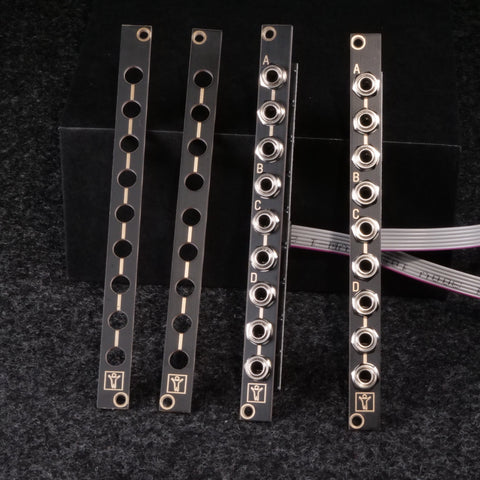
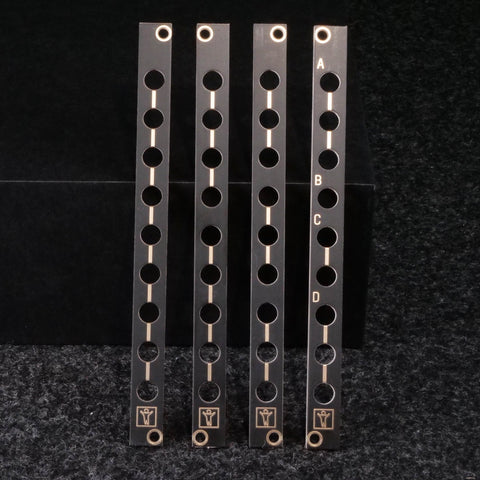
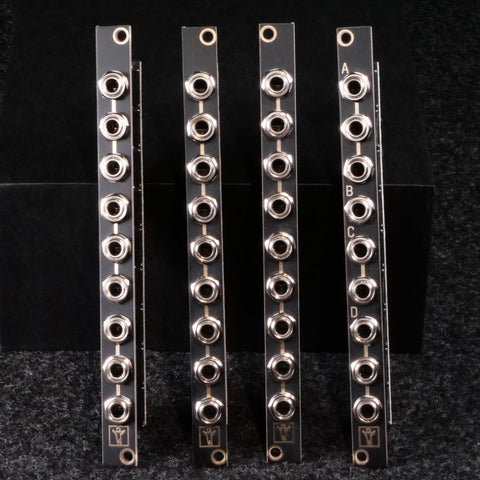
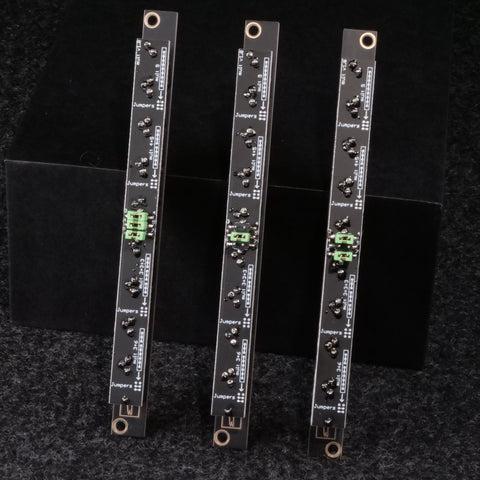
Two convertible multiples - preconfigured as CV bus
These "multiples" are a passive modules that split up signals in order to feed one output to more than one input. This article is a pair of two that are preconfigured to be CV bus but each be converted into three other configurations. Plus you get one 80 cm ribbon cable for connecting them.
The special thing about our multiples is that they have nine jacks and are convertible into four different configurations:
- three times three jacks (3/3/3)
- four jacks and five jacks (4/5)
- all nine jacks connected (9)
- two multiples wired at the back creating a CV bus
You can change each multiple into each of the four configuration with three jumpers on the back. In addition, these mults are shipped with an additional alternative faceplate. Each faceplate has two sides, so after changing the configuration with the jumpers you can have the faceplate match the actual configuration. Just unscrew the nine screws of the jacks and turn around or change the faceplate.
In order to save you this work for your new multiple, we offer all four configurations as a preconfiguration.
CV bus
For the configuration "CV bus" you need two multiples. Instead of the three jumpers you connect the two multiples with a 6-pin-ribbon cable (just as those you use for the DROID controllers). You then get a CV bus with four lanes called A, B, C and D:
- The lanes "A" and "D" have three jacks on each multiple.
- The lane "B" has one jack on each multiple and can be used as a short cut for one signal through your rack.
- The lane "C" has two jacks on each multiple.
The idea of this bus is to use a longer cables and give access to common jacks at two remote sides of your rack. The lanes A and D could for example be use for your master clock signal in order to make it available at both ends of your system.
The CV bus can also be used for audio signals but it is not ideal since the ribbon cable is unshielded and you might experience noise cross talk.
Current Draw: The module does not draw current
Width: 2 HP
Depth: 22 mm
